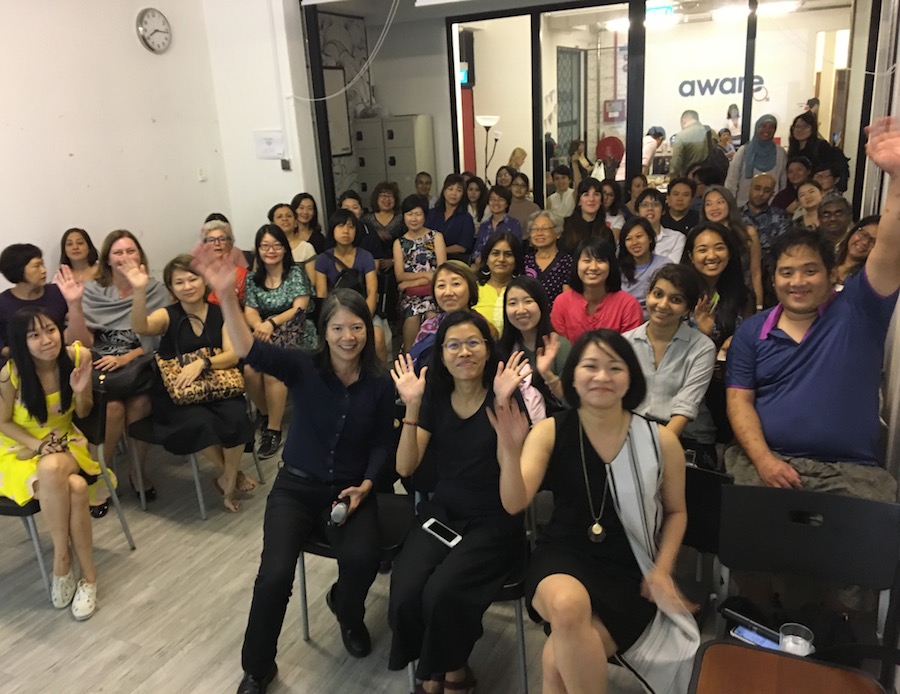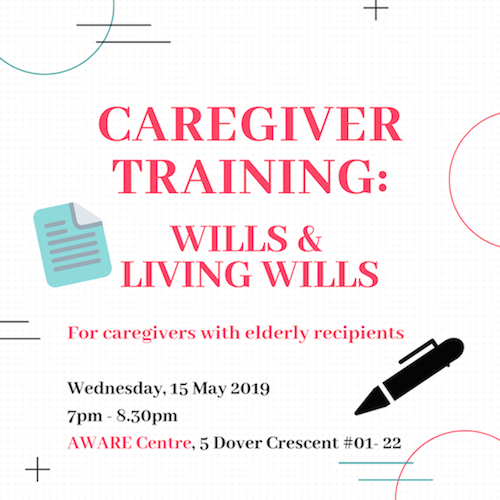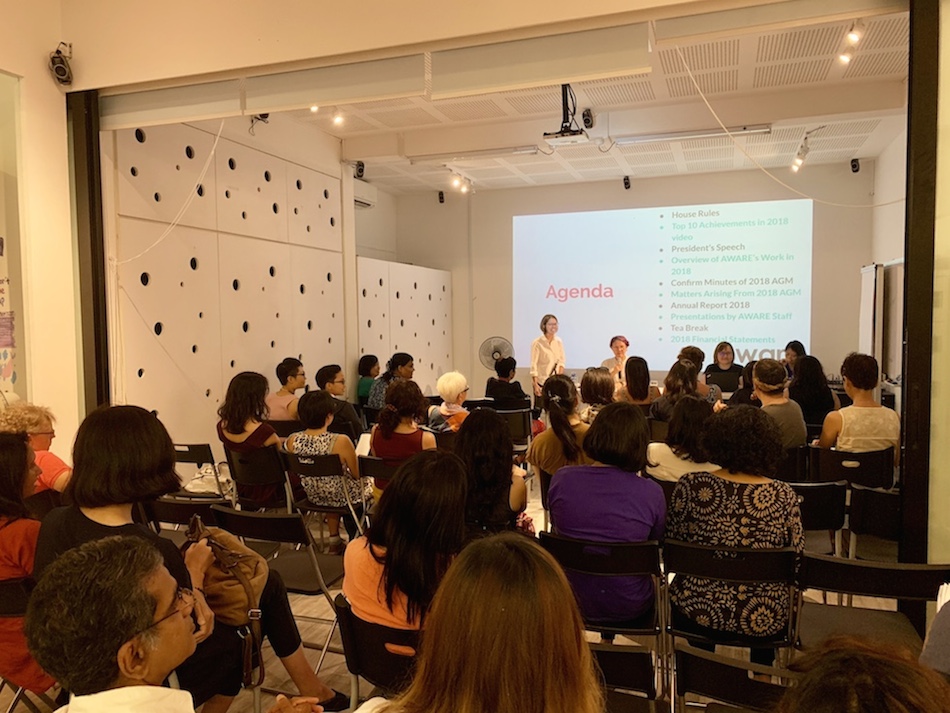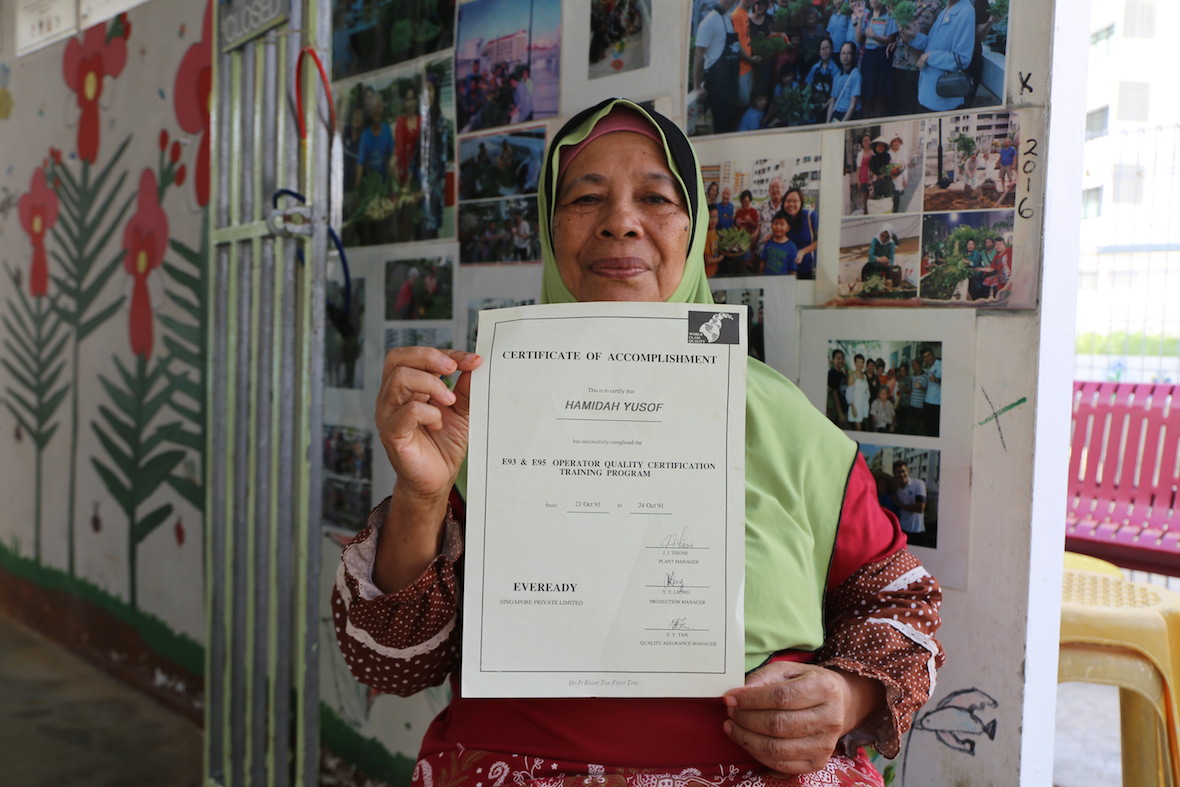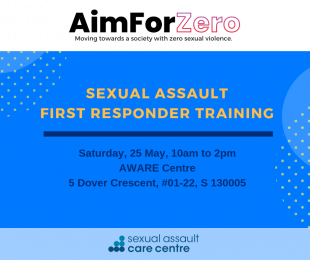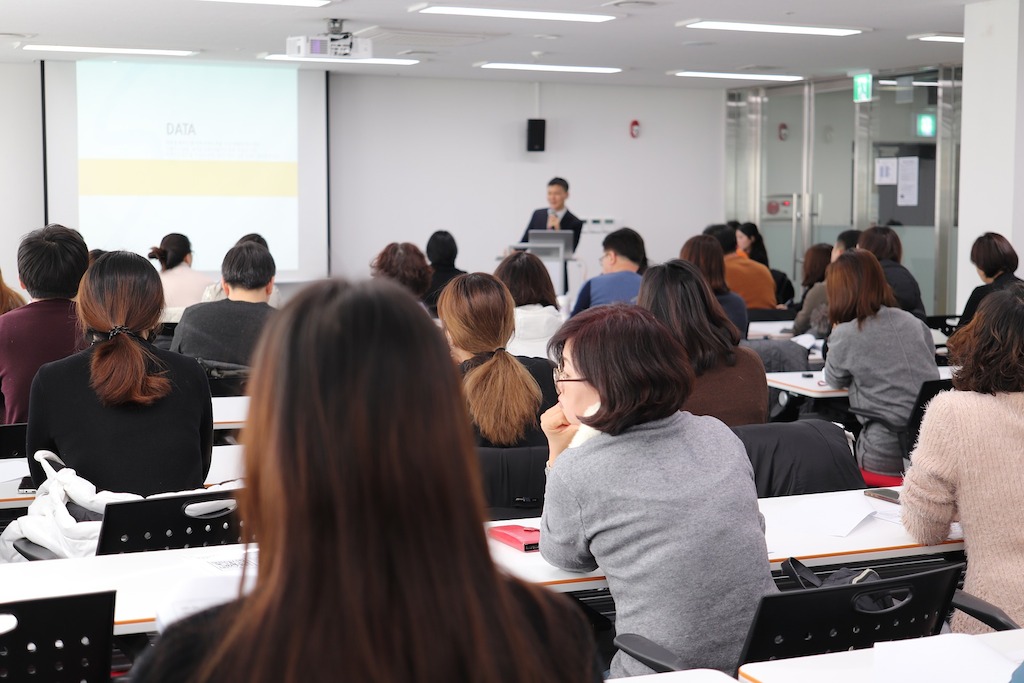
This post was originally published on The Straits Times on 4 May 2019.
by Shailey Hingorani, Head of Research and Advocacy, AWARE
Should the Singapore Government step in to help protect tertiary students from harm?
In September 2016, Nominated MP Louis Ng asked then Acting Minister for Education Ong Ye Kung if the ministry would formulate guidelines and provide anti-harassment training to staff in tertiary institutions in Singapore, based on the recommendations of the Tripartite Advisory on Managing Workplace Harassment.
Mr Ong assured Mr Ng that institution-specific codes of conduct were already in place to prevent harassment on campuses across the nation.
These guidelines, he said, were being communicated to students and staff. Survivors of harassment had access to various reporting channels.
In short, there was already a system in place, and it was functioning well – to both protect students from potential harassment and enable them to access justice when harassment did occur.
Back in 2016, the minister’s response may have been acceptable – comforting, even. Then #MeToo erupted in late 2017, shaking the wider population’s confidence in systemic protections against sexual violence.
This year, Singapore’s institutions are finally facing a #MeToo moment of their own.
A WATERSHED MOMENT
Last month, National University of Singapore (NUS) student Monica Baey criticised the way the school handled her case after she reported being filmed without consent by a fellow student in a residential hall while she was taking a shower.
Ms Baey’s story went viral, and turned a spotlight onto other recent cases of sexual harassment on campus, as well as the policies and practices of universities in Singapore.
Some of those institutions, it became apparent, have had inadequate systems of managing harassment for far too long.
One example is NUS’ simplistic “two strikes and you’re out” policy for sexual misconduct. Universities in Singapore need to be held more accountable for keeping their students safe.
There are six public universities in Singapore, and half a dozen foreign universities with local campuses. In the wake of this scandal, many have talked about reviewing their policies – NUS, for example, announced that its review committee, which includes three student representatives, will have a first round of recommendations out later this month.
So while it’s unfortunate that a crime had to occur before campus safety received some much-deserved scrutiny, we might have a chance now to turn Ms Baey’s terrible experience into a legacy of stronger systems in institutions across Singapore.
The question is, how?
A COORDINATED, NATIONWIDE APPROACH
University administrators and staff face practical challenges in dealing with campus harassment. They want to do the right thing, but they need support – because the fact is that investigating and managing sexual violence are difficult. The process is time-intensive and resource-heavy, and calls for nuance and specialisation.
These observations come from the experience of Aware’s Sexual Assault Care Centre (SACC), the only centre in the country dedicated to assisting and counselling sexual violence survivors.
After dealing with cases on a daily basis for nine years, SACC has learned a great deal about sexual violence, and developed the hard-won experience, aptitude and skills to tackle it.
Outside of Aware, others have recognised the need for specialised training in the area of sexual violence – the police, for example, have their own Serious Sexual Crimes Branch, which takes steps to familiarise officers with the effects of trauma on survivors.
Taking the specialised nature of this field of work into account, I have two proposals on how universities can be supported to better protect students.
First, I propose that the Government introduce codes and standards on how universities should prevent and manage sexual offences.
Second, I propose that a special cross-campus body be set up to handle sexual offence and assault cases. After all, the number of sexual offences on campuses is not small. Recent reports said 25 cases were brought before the disciplinary board of just one institution, NUS, over the academic years 2015/2016 to 2017/2018.
The dozen universities here cater to tens of thousands of students each year. Some sexual offence cases can be complex; for example, if they involve an abuse of power, lack of hard evidence, disputes over consent and so on.
CODE AND STANDARDS
The code introduced by the Government can be similar to the Tripartite Advisory on Managing Workplace Harassment, but it should be mandatory for all institutions of higher learning in Singapore. It can be adapted with definitions customised for the campus setting, incorporating feedback from students and experts.
This code should set out the duties of the schools to ensure zero tolerance of sexual harassment, provide adequate victim-care support, and set out standards and principles for investigating and managing sexual harassment incidents.
Over the past few years, as Aware has been invited to train certain university departments, we have had a chance to review several policies. This has driven home a few key lessons about campus harassment, which point to the necessity of such a code.
One: There is no consistent definition of what constitutes sexual harassment, misconduct or offence across different institutions.
For example, not all policies that we have reviewed specifically talk about situations where a person might be incapable of giving consent because of incapacitation, unconsciousness, sleep or a drug-or alcohol-induced state. Thus, the same case handled by two different bodies might result in two very different outcomes.
Two: Universities have varying complaint, investigation and disciplinary processes, all documented to different degrees across institutions. Some are relatively sophisticated and comprehensive; some are rather basic. The variation is unsettling – after all, safety processes should not be something students have to weigh when they choose universities.
Three: Even when there are anti-harassment processes in place, students often do not know whom to contact and what support is available. Designing strong policies is just the first step; their effectiveness erodes when they aren’t backed by clear and regular communication.
On that note, institutions might be tempted to rely primarily on e-learning to disseminate this important information, but while digital channels can suffice for certain types of messages, studies have shown that they need to be accompanied by in-person training for people with higher-level responsibilities; such as student leaders, managers or resident advisers.
Four: Not enough consideration is given to victim care. The universities with the best survivor support systems have properly trained counsellors; their students had also been trained to provide informed “first responder” support – which is critical to the recovery of the survivor, and plays a big part in reducing his or her trauma. Insensitive first-responder response – for example, invasive questions about clothing choices and sexual history – can trigger another wave of trauma in survivors.
Having a mandatory code that contains important basic requirements and a standard set of best practices will save institutions the arduous, frequently ineffectual work of having to make these decisions for themselves. With a code, they can receive expert guidance, and learn from each other’s experiences.
AN INDEPENDENT BODY
Apart from having a code of standards on the handling of sexual offences, the Government should also consider setting up an independent body for campus sexual offences across Singapore.
This body will manage the investigation and adjudication process for determining the appropriate discipline, and ensure that universities continue to improve their safety standards. This leaves universities free to focus on providing victim care and running prevention programmes.
How this might work is simple: Initial reporting can be made to a designated person in a residence hall or department, who can coordinate victim care almost immediately. That person then sends the case to the independent body to investigate.
This body will be comprised of experienced investigators and a panel. It will work speedily, based on a process of investigations, adjudication and appeals that has been drafted with feedback from students, experts and survivors, and made accessible to everyone on campus.
Any inquiries into a sexual assault complaint should focus not only on whether the assault occurred, but how it impacted the survivor as a student – such as whether his or her grades, attendance or mental health suffered – and whether the assault hindered the survivor’s ability to study and feel safe in that school environment.
Besides expertise and consistency, one further benefit of the independent body is that it could provide more accountability. It can, for example, conduct annual student, staff and faculty climate surveys; conduct institutional audits of responses to sexual misconduct; and ensure minimum levels of training for on-campus personnel, including victim-care units.
Even if an independent body is not set up, perhaps the Ministry of Education could take on the mantle of auditing and reviewing to make sure that all universities have the right processes and trained personnel in place, and that there is some annual reporting back to the public via the ministry.
The benefits of this national, coordinated approach to managing campus harassment are clear: Universities would rely on external expertise, instead of having to devote resources to building up their own.
Students would enjoy consistency of practice and outcomes throughout the nation’s tertiary education system.
Any society that takes the education of its citizens seriously must protect, as best as it can, the sanctity of their learning experience. Let’s not wait for more scandals to pile up before we take serious action against campus harassment.




